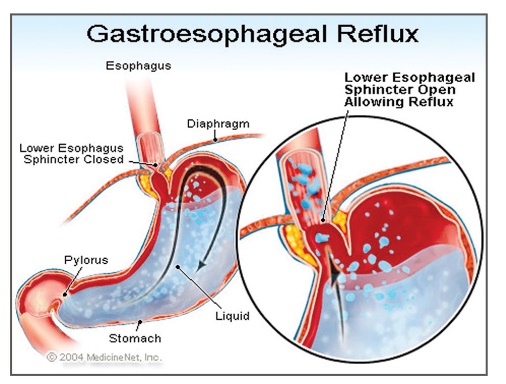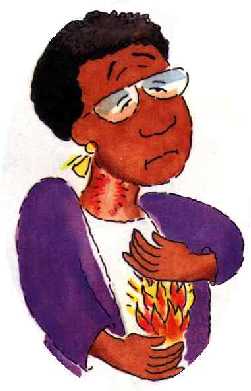Written by Debbra A. Livingston MSN, ARNP, BC – Jacksonville District

Your esophagus is the tube that carries food from your mouth to your stomach. Gastroesophageal reflux disease (GERD) happens when a muscle at the end of your esophagus does not close properly. This allows stomach contents to leak back, or reflux, into the esophagus and irritate it.
You may feel a burning in the chest or throat called heartburn. Sometimes, you can taste stomach fluid in the back of the mouth. If you have these symptoms more than twice a week, you may have GERD. You can also have GERD without having heartburn. Your symptoms could include a dry cough, asthma symptoms, or trouble swallowing.
Anyone, including infants and children, can have GERD. If not treated, it can lead to more serious health problems. In some cases, you might need medicines or surgery. However, many people can improve their symptoms by
- Avoiding alcohol and spicy, fatty or acidic foods that trigger heartburn
- Eating smaller meals
- Not eating close to bedtime
- Losing weight if needed
- Wearing loose-fitting clothes
Take this “Richter Scale/Acid Test” to see if you’re a GERD sufferer and are taking the right steps to treat it.
1. Do you frequently have one or more of the following:
a. an uncomfortable feeling behind the breastbone that seems to be moving upward from the stomach?
b. a burning sensation in the back of your throat?
c. a bitter acid taste in your mouth?
2. Do you often experience these problems after meals?
3. Do you experience heartburn or acid indigestion two or more times per week?
4. Do you find that antacids only provide temporary relief from your symptoms?
5. Are you taking prescription medication to treat heartburn, but still having symptoms?
If you said yes to two or more of the above, you may have GERD. To know for sure, see your doctor or gastrointestinal specialist.
For more information about heartburn and GERD, call 1-800-HRT-BURN

References:


